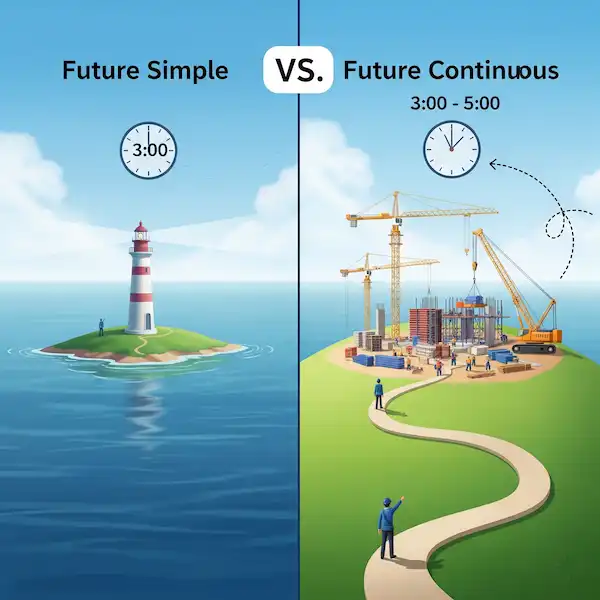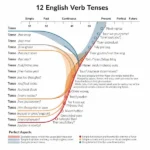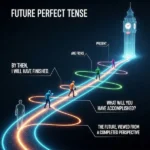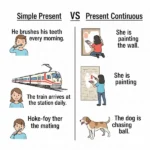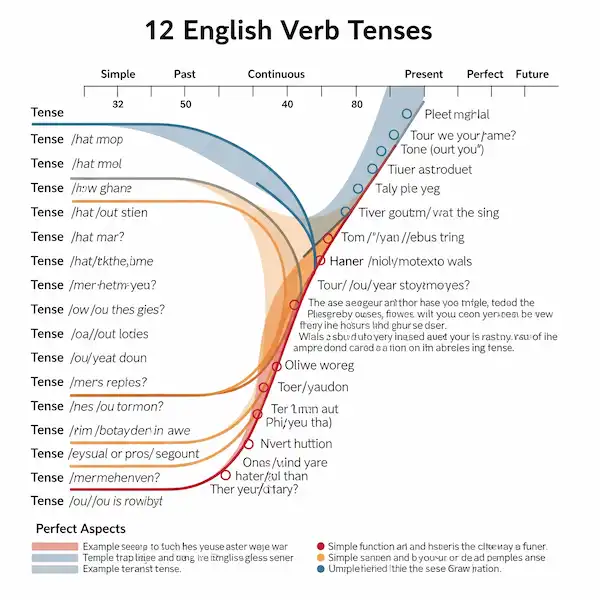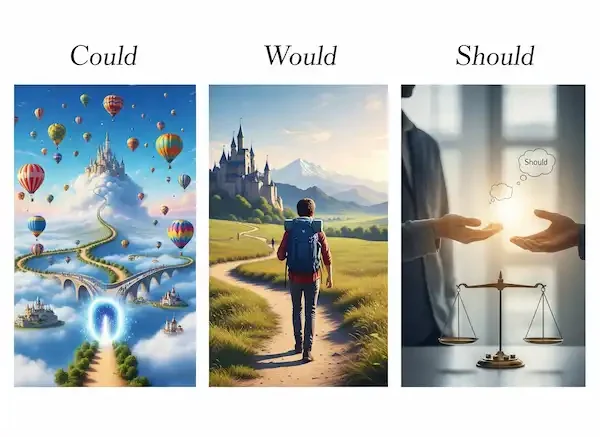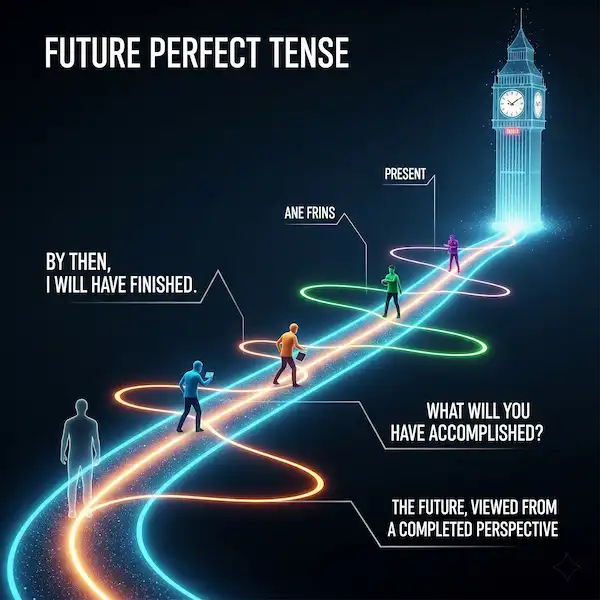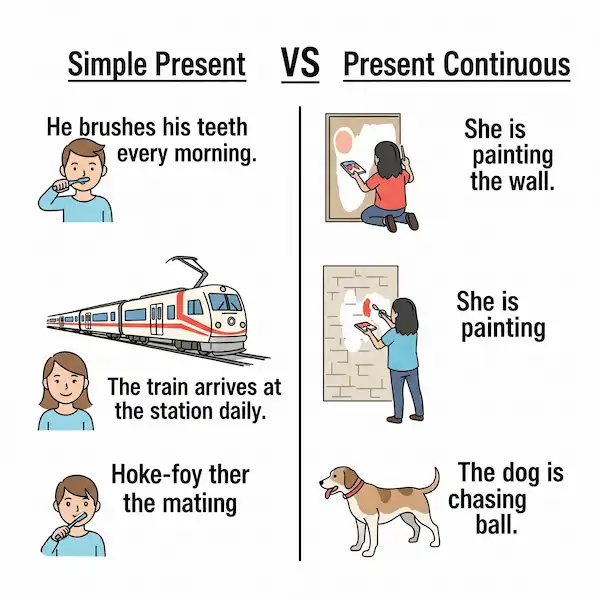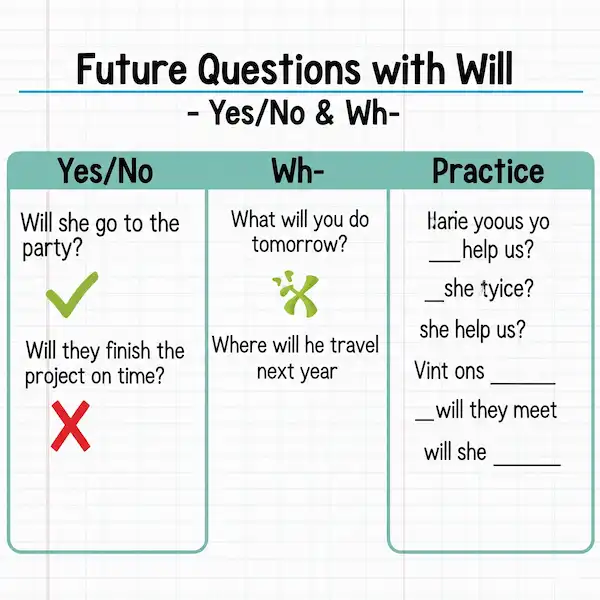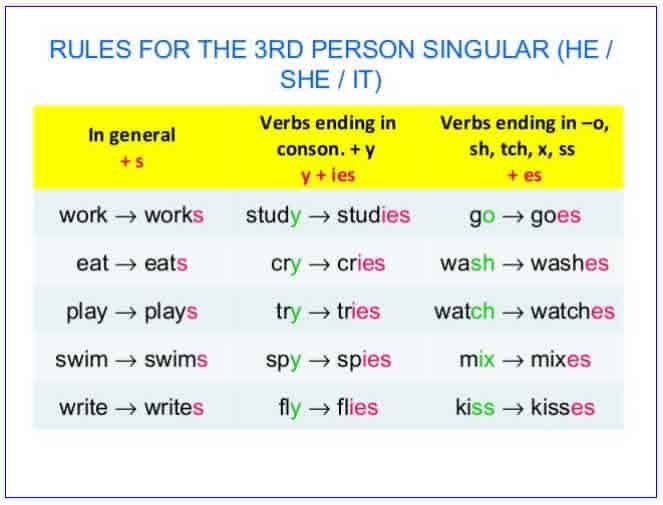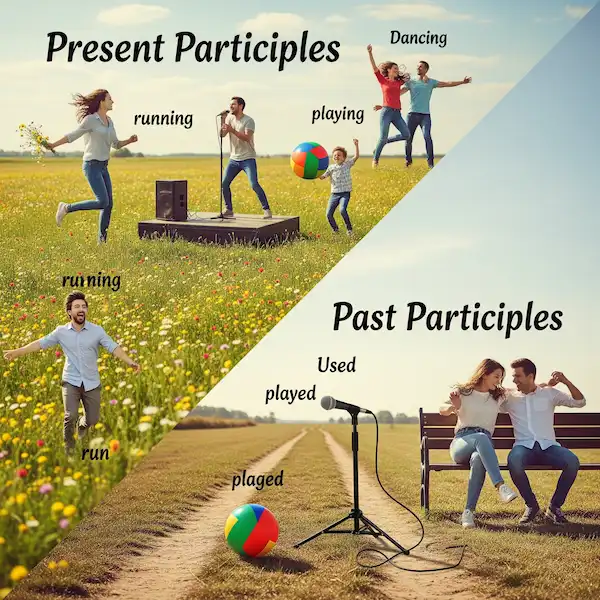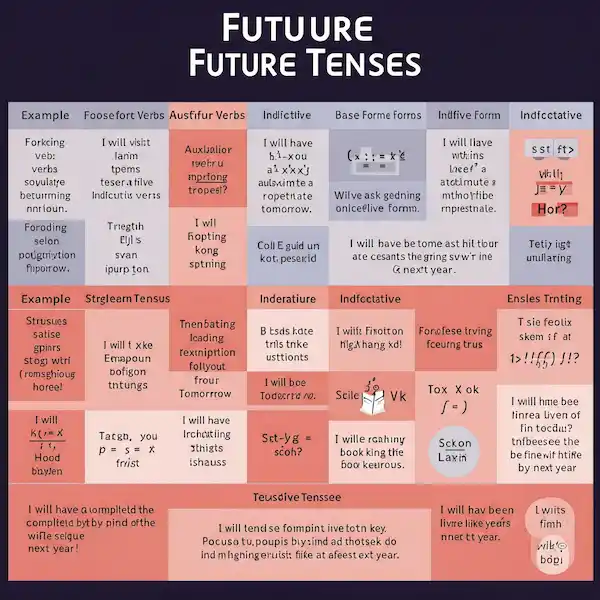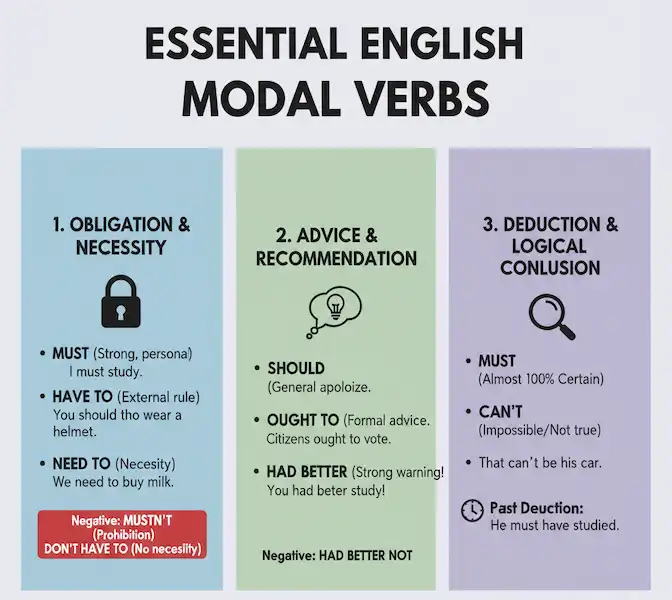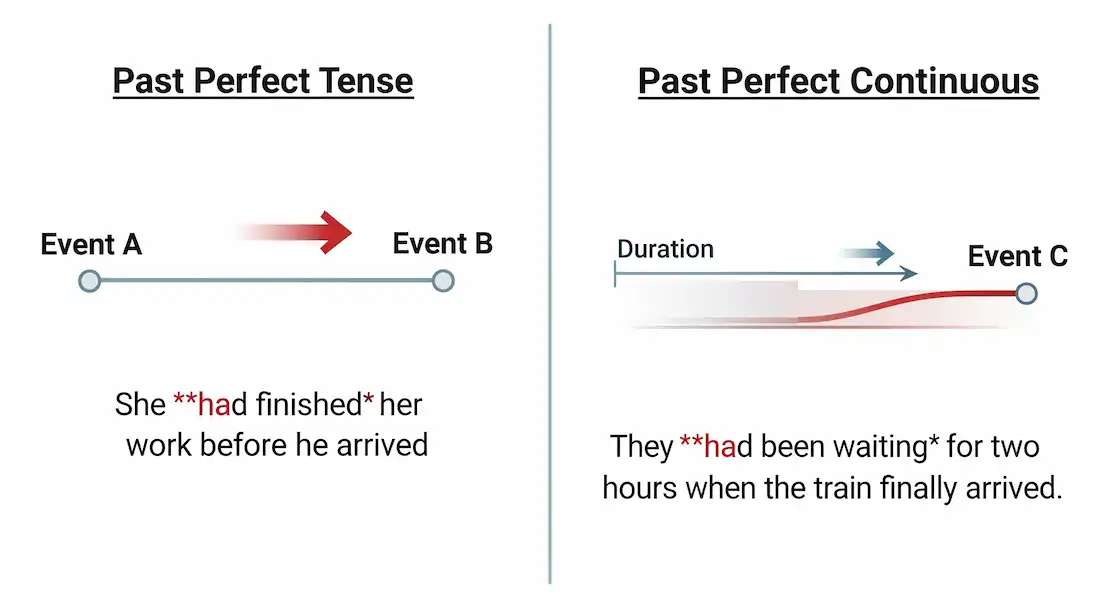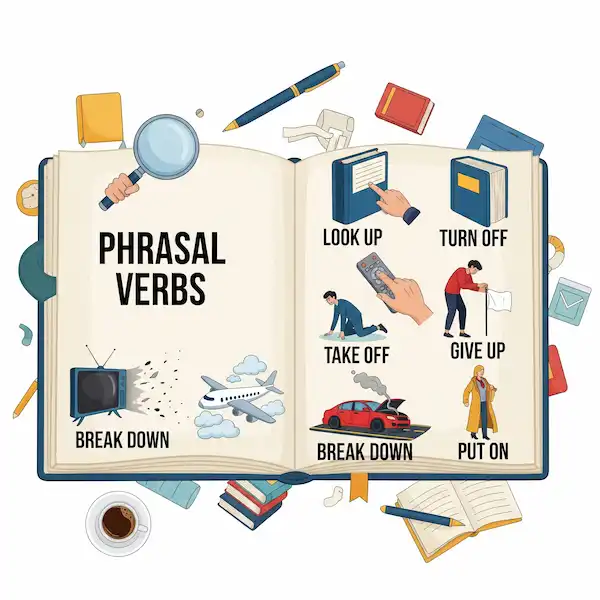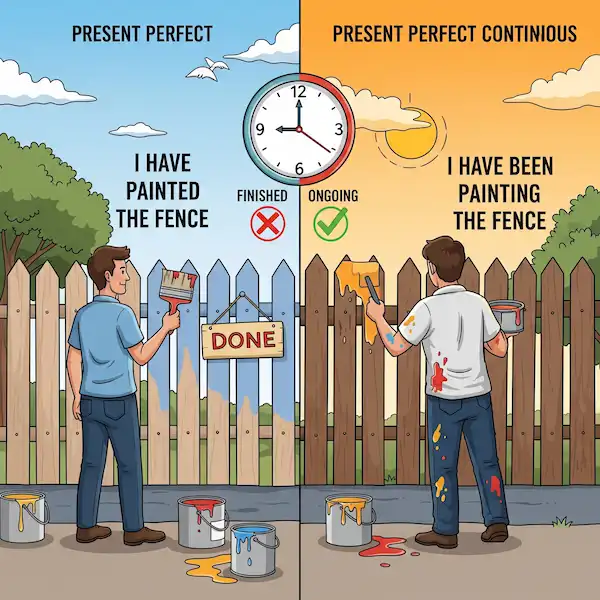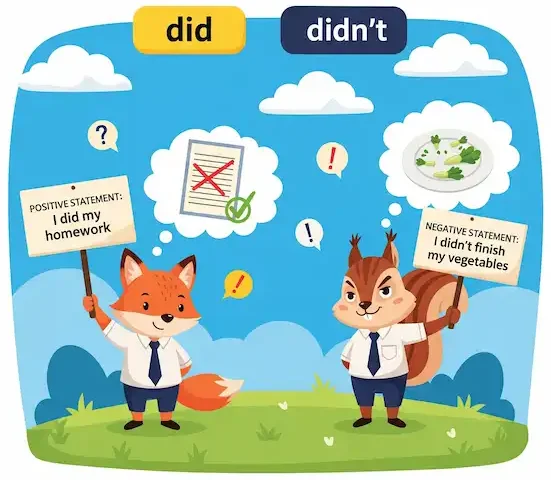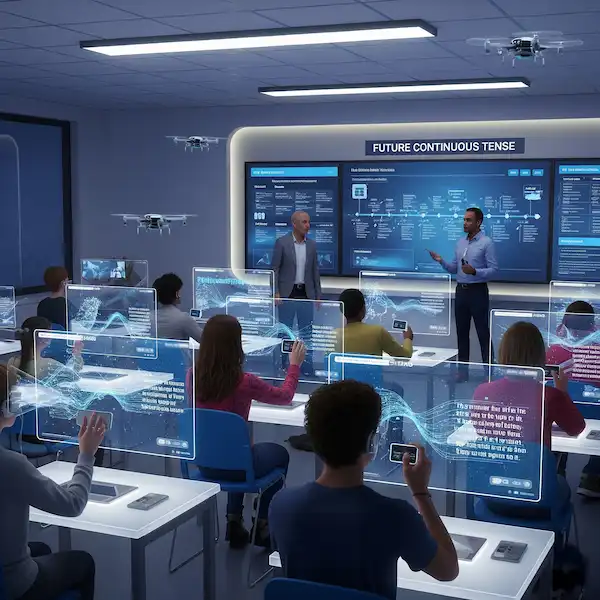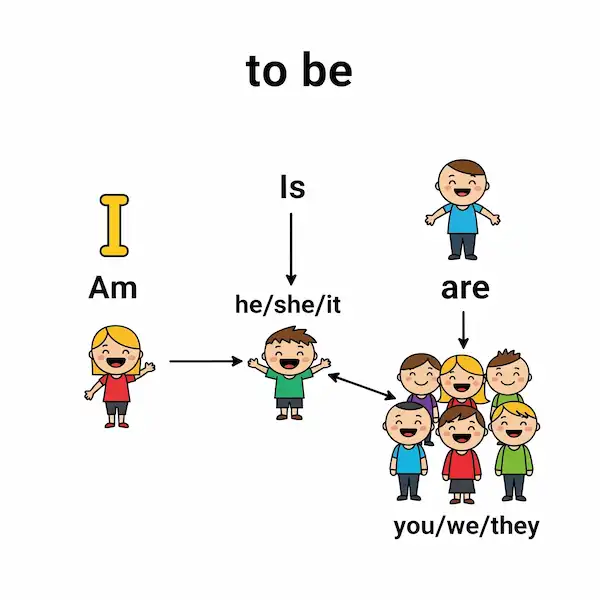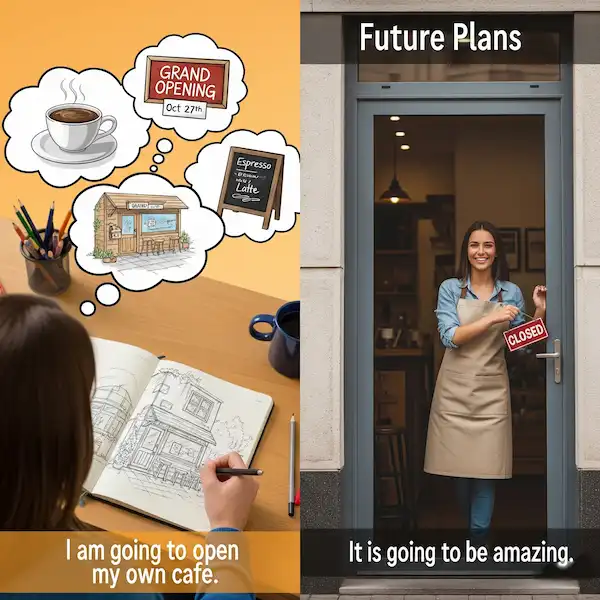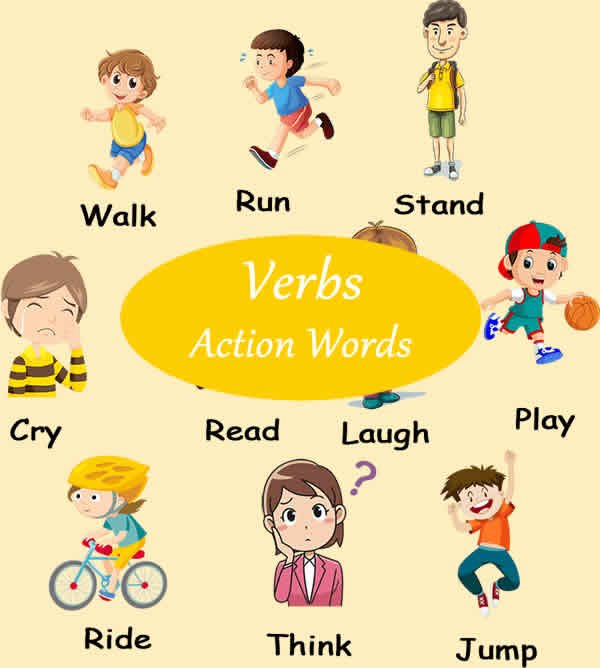Mastering the Future: Future Simple and Future Continuous
Welcome, English learners! Today, we’re diving into two essential future tenses: the Future Simple and Future Continuous. While both talk about the future, they each paint a slightly different picture of what’s to come. Understanding their nuances will help you express yourself with greater precision and confidence.
Let’s break Future Simple and Future Continuous down!
The Future Simple: Predicting and Deciding
The Future Simple is your go-to for general predictions, spontaneous decisions, and statements of fact about the future. Think of it as a straightforward look ahead.
Forming the Future Simple:
It’s super easy! Just use will + base form of the verb.
- Positive: Subject + will + base form (e.g., I will eat)
- Negative: Subject + will not (won’t) + base form (e.g., They won’t go)
- Question: Will + subject + base form? (e.g., Will you help?)
When to Use the Future Simple:
- Predictions: When you’re talking about what you think will happen.
- Example: “I think it will rain tomorrow.”
- Example: “She will probably pass the exam.”
- Spontaneous Decisions: For decisions made at the moment of speaking.
- Example: (Phone rings) “I will answer it.”
- Example: “Oh, that sounds interesting! I will come with you.”
- Offers and Promises:
- Example: “I will help you with your homework.”
- Example: “I promise I will call you later.”
- Habits or Facts in the Future:
- Example: “The sun will rise at 6 AM.”
- Example: “Next year, I will turn thirty.”
Example Sentences:
- “Don’t worry, I will be there on time.”
- “He will start a new job next month.”
- “I hope you will enjoy the party.”
The Future Continuous: Actions in Progress
Now, let’s move to the Future Continuous. This tense is all about actions that will be in progress at a specific point in the future. It paints a more dynamic picture, showing an ongoing event rather than a single completed action.
Forming the Future Continuous:
This one uses will be + verb-ing (present participle).
- Positive: Subject + will be + verb-ing (e.g., I will be eating)
- Negative: Subject + will not be (won’t be) + verb-ing (e.g., They won’t be going)
- Question: Will + subject + be + verb-ing? (e.g., Will you be helping?)
When to Use the Future Continuous:
- Actions in Progress at a Specific Time: When you want to say that an action will be happening at a particular moment in the future.
- Example: “At 7 PM tonight, I will be eating dinner.”
- Example: “This time next year, I will be living in Paris.”
- Parallel Actions in the Future: When two actions will be happening simultaneously.
- Example: “While she is working, I will be studying.” (Note: often uses present continuous for the first clause)
- Example: “They will be watching TV while we are cooking.”
- Planned Future Events (Less Common but Possible): Sometimes used for things that are already planned or arranged, especially when you want to emphasize the ongoing nature.
- Example: “I will be meeting John later.” (Similar to “I am meeting John later,” but with a slight emphasis on the duration)
- Polite Questions about Future Plans:
- Example: “Excuse me, will you be using this computer for long?”
- Example: “Will you be attending the conference tomorrow?”
Example Sentences:
- “Don’t call me between 2 and 3 PM; I will be having a meeting.”
- “When you arrive, we will be decorating the house.”
- “I hope the kids will be sleeping by the time we get home.”
Future Simple and Future Continuous: A Side-by-Side Comparison
Let’s look at some direct comparisons to really solidify your understanding:
| Feature | Future Simple (will + verb) | Future Continuous (will be + verb-ing) |
| Main Idea | Single action, prediction, decision | Action in progress at a future point |
| Focus | The result or decision | The ongoing nature of the action |
| Time Reference | General or specific point (completion) | Specific point or period (duration) |
| Example 1 | “I will finish my homework by 8 PM.” (Completion) | “At 7 PM, I will be doing my homework.” (In progress) |
| Example 2 | “He will visit his grandma next week.” (Single action) | “Next Tuesday morning, he will be driving to his grandma’s house.” (Ongoing) |
| Example 3 | “The train will arrive at 3 PM.” | “When you call, I will be waiting for the train.” |
Practice Makes Perfect
Choose the correct tense (Future Simple or Future Continuous) for the following sentences:
- Tomorrow at this time, I (fly) _______________ to London.
- I think it (be) _______________ sunny tomorrow.
- Don’t call me after 9 PM. I (sleep) _______________.
- Oh, the phone is ringing! I (get) _______________ it.
- By the time you arrive, we (eat) _______________ dinner.
- She (not finish) _______________ her report by Monday.
Answers:
- will be flying
- will be
- will be sleeping
- will get
- will be eating (or will have eaten, but future continuous works for an ongoing action)
- will not finish </details>
Here is a PDF worksheet you can download to practice future simple and future continuous. The answers are on a separate page.
Conclusion
Congratulations! You’ve taken a big step in understanding the difference between the Future Simple and Future Continuous. Remember:
- Future Simple: For predictions, spontaneous decisions, offers, and promises.
- Future Continuous: For actions that will be in progress at a specific time in the future.
Keep practicing, and soon you’ll be using these tenses like a native speaker!
Additional Helpful Links
- Study more about the Future tense – Future Tense – Simple, Continuous and Perfect
External Links for Authoritative Sources:
- British Council – Future Simple: https://learnenglish.britishcouncil.org/grammar/b1-b2-grammar/future-simple
- British Council – Future Continuous: https://learnenglish.britishcouncil.org/grammar/b1-b2-grammar/future-continuous
- Cambridge Dictionary – WILL (Future Simple): https://dictionary.cambridge.org/grammar/british-grammar/will
- Cambridge Dictionary – Future Continuous: https://dictionary.cambridge.org/grammar/british-grammar/future-continuous
